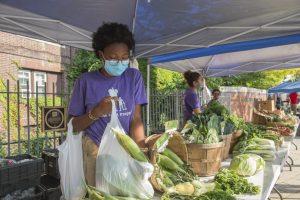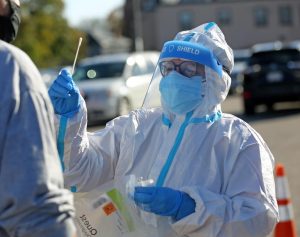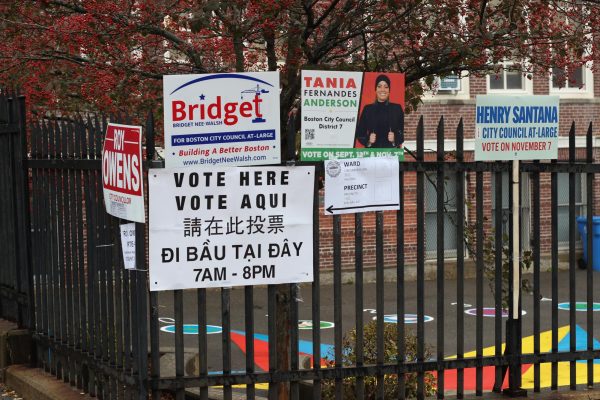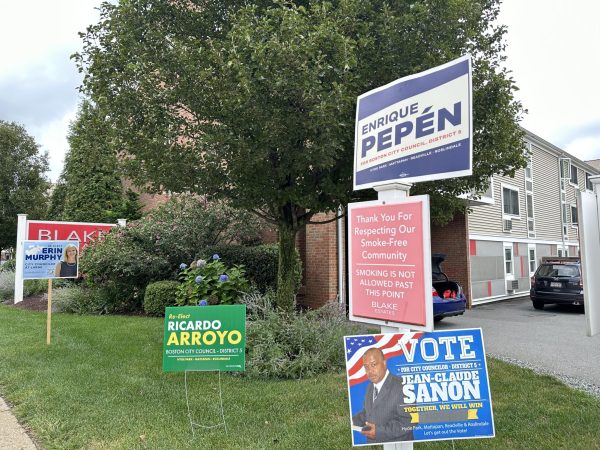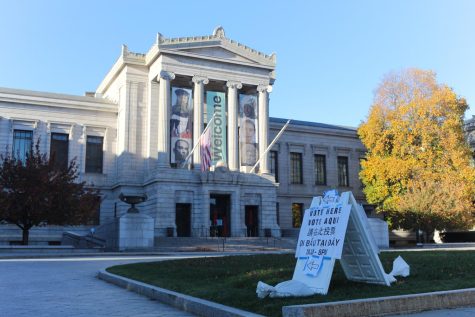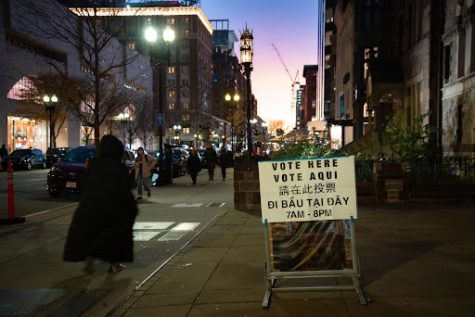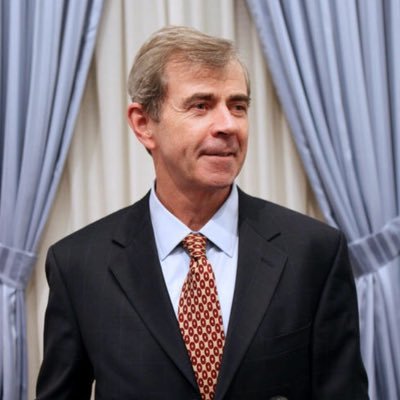City council race: Kendra Hicks running for District 6
Kendra Hicks is a candidate running to represent Boston’s District 6, which includes Jamaica Plain, West Roxbury, and Roslindale, in the City Council. As a first generation Afro-Dominicana, she would be the first Black woman to be elected in the history of the district.
Mary Tamer and Kelly Ransom are also running for the District 6 seat. The incumbent, Councilor Matt O’Malley, said he will not seek re-election this year.
Hicks grew up in Jamaica Plain. She is an artist and community organizer. She sat on the Hyde Square Task Force, which supports culture in Jamaica Plains’ Latin Quarter. She also worked as an organizer of the neighborhood’s Wake Up the Earth Festival, which brings together music, dance, theater, and storytelling performances every May. She co-founded the Beantown Society, a youth-led after-school program that addresses youth violence. For the past five years, she has also worked as the director of radical philanthropy at Resist, a Boston-based organization that helps to fund grassroots activism.
Hicks’ policy priorities include justice in education, meeting the basic needs of community members to encourage community safety, affordable housing, environmental justice, ensuring fair wages and an equitable economy, and supporting a vibrant culture.
District 6 incumbent, Matt O’Malley, announced in December that he would not seek re-election, after more than a decade in the seat.
Hicks talked to the Scope about her campaign and what she hopes to achieve as a city councilor representing District 6. The following transcript of the conversation has been edited for length and clarity.
What made you decide to make the jump from being a community organizer and someone who works at a nonprofit to wanting to be a part of city government?
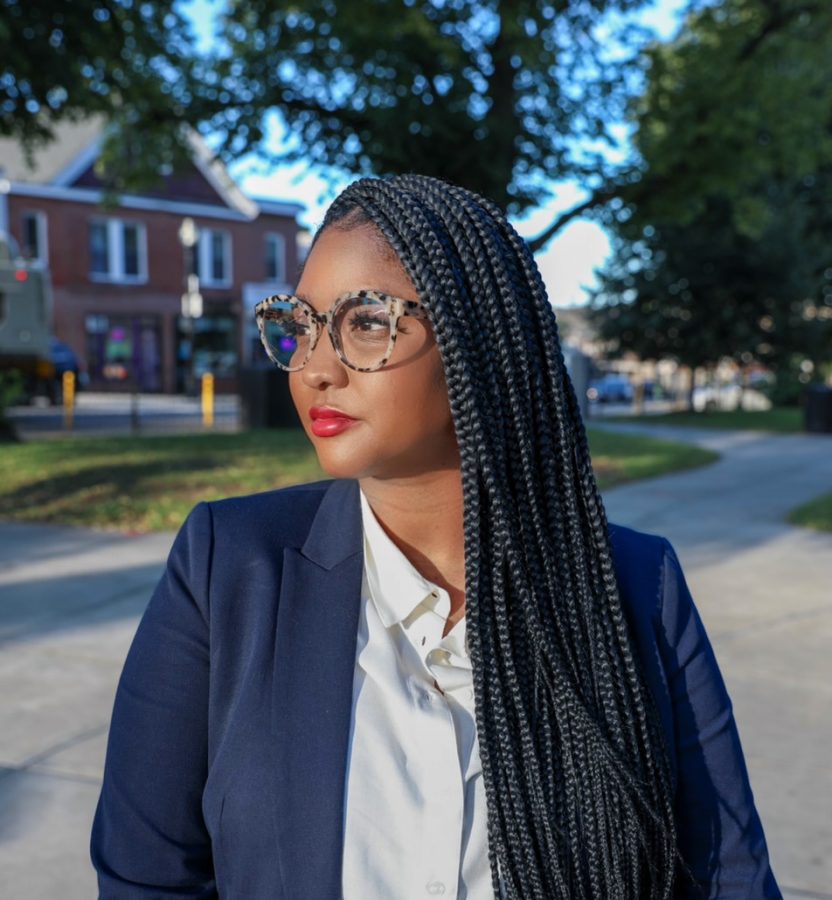
I had to do a lot of shifting in terms of my own personal theory of change. When I think about my own personal theory of change, I’m like, what do I believe? And what do I think actually brings about change in the world? Because I’m an organizer, a lot of my work is centered around the on-the-ground grassroots movement work. When you want something done, when you want to shift the way your communities, your cities, or states work, you get on the ground and you build a movement.
I see electoral politics as a lever that we can pull. It’s a part of what we do. Not all of it. And so I don’t think that electoral politics would be effective without community organizing. So in that sense, to me, it’s not necessarily a binary. It’s not like an either or.
You can do so many things when we’re talking about movement building, moving towards justice. There’s so much that we can do. And community organizing is one of them, healing justice work is one of them, mutual aid is one of the things that you can do. And electoral politics is just one of the things on the long list of ways that we can make change. I think for me, given that my focus has been on building policy within organizations and at the city level I thought it was a good fit to kind of go in and try to make structural changes at the local level,
What do you think your activism background will bring to the role, if elected?
We haven’t had a movement organizer in the city council since Chuck Turner. The late Chuck Turner was a movement builder and was a city councilor. I think that what we see from a lot of our politicians is that they don’t know how to organize their communities. They don’t necessarily all understand the benefits of it. And so I think me being a movement organizer, I am not only bringing my personal experience. [I] also come with a political theory and these are the set of values that I’m holding in this office and all things that I do.
It’s not like playing policy whack-a-mole when you’re just responding to the things that are happening. You have a layout of, ‘This is what it looks like. These are all of the issues and strategically. This is how we move this forward.” And I think that being a movement organizer, being connected to the people who are organizing is a benefit because you’re not just coming with your personal experience, you’re also coming with a political ideology.
On top of that, you are accountable to these communities. I always tell people a lot of policy changes that elected officials want to put forth, they’re just demands from community organizing groups, demands that they’ve been making for 10 years. This is why I say electoral politics doesn’t live in a vacuum outside of community organizing.
Whenever your favorite elected official puts forth a new policy proposal. It’s because people on the ground had to have done the work to make this one of their policy demands, or to bring this issue to the forefront. It’s not because we’re just brilliant, it’s that we’re being responsive. Like the officials are responding to the demands of the people. As somebody who comes from those movements, I know that to be true. Whenever I’m making decisions about directions to move in, you look at what the demands of the people are. And you kind of hold yourself to those demands.
What are some of the issues that are most important to you that you want to work on if you’re elected to city council?
Our policy platform is the “Six for District 6.” The reason why we have these six issues is because we think that these six buckets kind of are like an umbrella. We’re working on justice and education, on increasing our investment into community safety, on building healthy, affordable homes. We’re looking at environmental justice and climate action, and building a fair and equitable economy.
I’m an artist. So building strong and vibrant culture is something that’s really important to me. The reason why we have these six and I don’t have three or something smaller is because all of these issues intersect with one another. Education doesn’t exist in a vacuum from housing. Housing doesn’t exist in a vacuum from environmental justice. Environmental justice does not exist in a vacuum from community safety.
When I think about what are the interconnected systems that are impacting people the most, I think about these six things, and all else feels like can fall under these six issues, give or take a few things. I’m really excited to work on these issues in a way that shows that they each impact one another. They don’t stand alone.
Last summer, we saw a large scale reckoning around racial injustice in Boston, in the country, and around the world. What do you see as the biggest areas of racial injustice in Boston and how can we move forward to improve those areas?
Similarly to what I said about my policy initiatives, every area is an area of racial injustice. I think that systemic oppression is at its core racialized. Whatever issue that you look at, whenever you look at any of the data, Black and brown people are the hardest hit in all aspects of it, whether it be housing, whether it be the people who are at risk with climate change, whether we’re looking at education, and whether we’re looking at policing.
When you’re looking at the economy, the black family in Boston has $8 worth of wealth versus $247,000 of a white family. And even when you see access to culture and cultural events around the city, all of those things impact Black and brown people disproportionately. For me, every issue is a racial justice issue.
Once we start looking at it like that, then we can start actually building some policy that can get us and our communities out of the hole that we’re in. But we have to build policy from a place of truth. We can’t build policy from a place of not being honest about what the actual problem is.
Environmental justice is one of your main policy pillars. Environmental justice disproportionately impacts Black and brown communities. Can you talk a little bit about that and what the state of environmental justice or injustice is in the city of Boston?
We can’t look at environmental policies in a vacuum. I think that individual changes to people’s behaviors can only do so much to limit and reverse the damage that we’ve done. And a lot of the conversations that we’re having about environmental justice are around promoting individual changes. So I think that ensuring that our city is really resilient in the face of climate change is going to require us to make some big sweeping systemic changes.
This means we’re going to think strategically about how and where we decide to build. We’re going to be decreasing our reliance on fossil fuels. We’re going to be prioritizing and investing in accessible transit. I think that we can make a much more significant impact if we’re really intentional about policy on a macro level, given the economic impact that the city spending can have.
I do think that we have a responsibility to make Boston a leader in that sense. I believe that we can be really much more proactive in our goal setting towards being a carbon neutral city. Our current goal right now is 2050. I think that that’s too late.
I think that we need to move and think about being a carbon neutral city sooner. I do think that we need leaders that are ready to act with the urgency that the impending climate crisis really requires. COVID-19 has also disproportionately impacted low-income communities and communities of color. And so we know that climate change is going to have a similar effect. I think that we have to take that opportunity to make changes so that we can help mitigate that impact.
The 2020 election showed us that our country is deeply divide, according to the vote. President Biden and has talked a lot about unity. But some people say it’s not possible to unify on certain issues that are too important to ignore or to meet in the middle of. How do you think we move forward as a country given these deep political divisions? What place do you think unity has in these discussions and how do you see us moving forward?
I think I would agree with most people that you can’t have unity without accountability, right? Every conservative in the city or in the country doesn’t necessarily feel that there’s anything to be held accountable for. That includes our leaders. We need to have conversations that are based in reality.
If one side is having a conversation based on this reality, but then this other side of people are just having a conversation based on a completely different reality, It makes it nearly impossible to build common ground. I’m running to represent a district that is very split in that way, across those similar lines where one of our neighborhoods is very conservative and the other is super, super progressive, very far to the left.
One of the ways that I’ve been having these conversations is about anchoring us in shared values. What are the things that we share? There are a lot of conversations and a lot of work that needs to happen in this country that have nothing to do with electoral office. The president can’t actually do anything to mend, heal, and have really transformative conversations around racial injustices in this country. We have to do that. We have to do that with our neighbors. White folks have to do that with white people. Black people need to get their people and talk about internalized racism. This is the organizing work.
We shouldn’t be legislating in a way that makes it so that a certain subset of our country or of our state or our city or our neighborhood doesn’t have the ability to meet their full human potential because we are building laws and creating policy that is actually hindering them from doing that because of their own personal conservative beliefs.
I think that there is a place for unity. I don’t think that we’re going to survive if there is not. I don’t think the planet is going to survive. I don’t think as people we are going to survive, if we don’t figure something out. We have to figure out how to live together, across differences. We have to figure out where are the places where we have shared values and just start from there and figure out how do we build a community where everybody can thrive. Everybody can live, and we’re not at the whim of policies that will stop us from meeting the potential.
What are those shared values of Boston and of District 6? What do you love about the area that you’re trying to represent?
I love this place. I grew up here. Service is a value that’s really intertwined throughout the district. That’s something that we can anchor in, is, do we want everybody in the city to have equal access to housing, to good public education? If we feel like our children are safe, do we want other parents to also feel like their children are safe? I think that there’s some values there that most people will say yes to. Of course, if my child feels safe, I want other parents to feel like their children are safe. Okay. What are the things that are making other people’s children feel unsafe? And I think that that is where we start and we can kind of go down the ladder and kind of struggle together to figure out what that could look like.
Most people will also say, of course everybody should have equal access to a good public education, but some people think that we need to do that by bolstering charter schools. Some people think, no, we just need to pay a little higher taxes or something. You know what I mean?
I think one of the questions that I ask people is when a place where you’ve been privileged, when we’re having a conversation about equity, or we’re having conversations about justice, you can’t have that conversation without considering what you’re going to have to give up. I think that that’s where people kind of get stuck. You know, I have to pay an extra $5 a year in property taxes so that we can do X, Y, and Z. I think getting through those concerns is the hard part.




